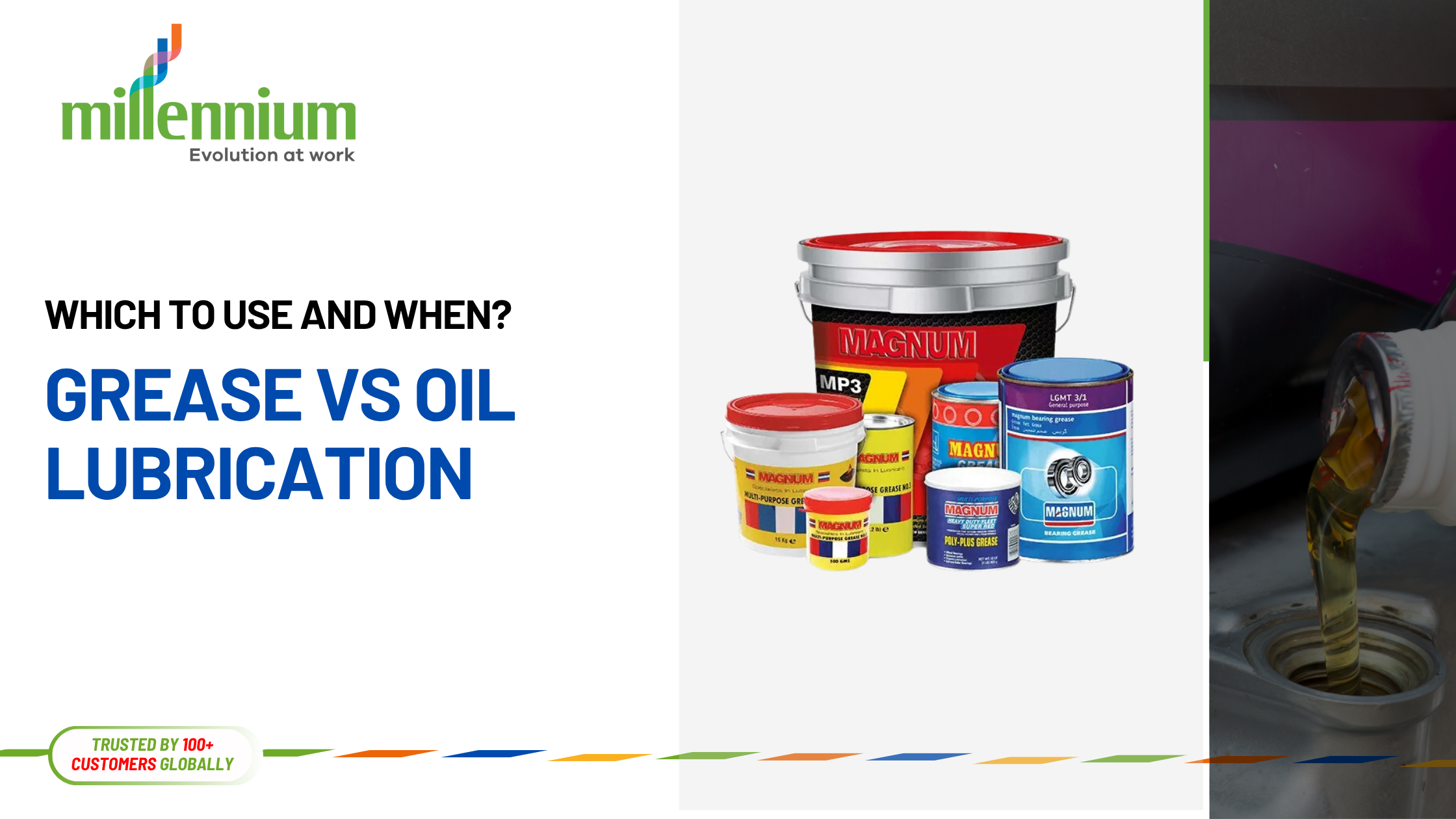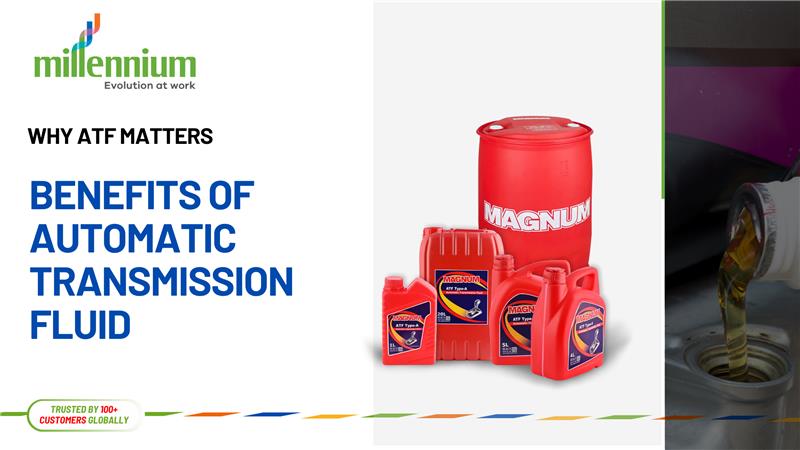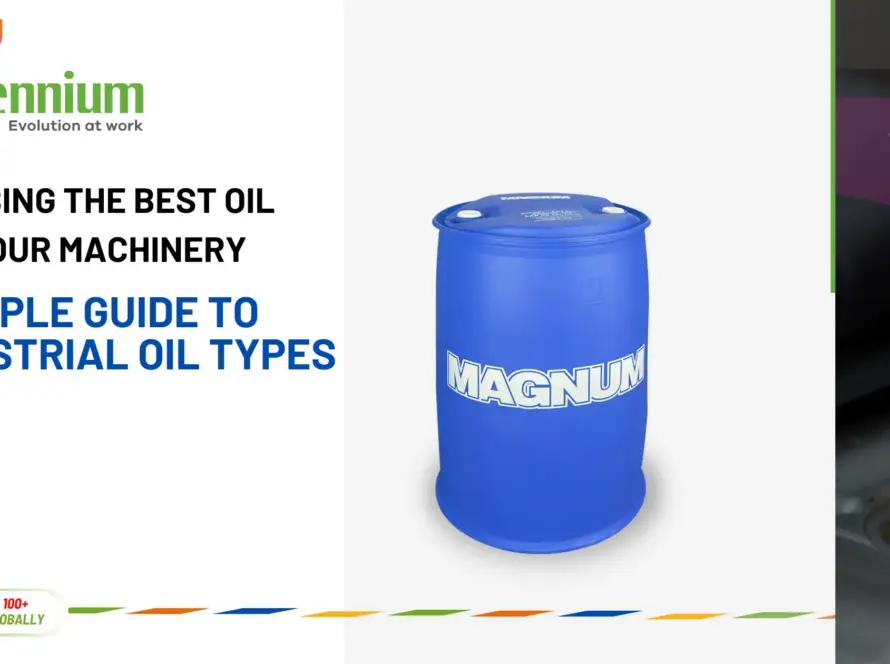Introduction
If you want the best performance from your machine, choosing the right lubrication is very important. There is confusion in every industry these days about grease vs oil lubrication because lubrication has a direct impact on the life span of the machine. When engineers discuss lubrication options, factors such as load, speed, design and environment are analyzed very seriously.
Incorrect lubrication can quickly damage the machine and also increase maintenance costs. Incorrect lubrication also increases machine downtime, which has a negative impact on both production and profits. This is why every machine operator should have basic knowledge of grease vs oil lubrication.
In this article, we will explain to you simply and practically which lubrication should be used, when and how, and how to make the best decision according to the working conditions.
Basics of Lubrication
The work of lubrication is simple – to reduce friction, protect machine parts and maintain smooth working.
Lubricating oil is thin. It easily penetrates small places and removes heat and dirt. Grease is a little thick and sticky, so it sticks to its place and protects the parts even in tough conditions.
Oil generally provides a cooling effect and flushes out contaminants, while grease forms a protective film and provides long-term protection. Oil provides more cooling, while grease is superior in sealing and long-term protection.
The final goal for both is to prolong the life of the machine and maintain continuous smooth performance. The selection of lubrication becomes very important according to the machine’s operating pressure and exposure environment. When you think of using grease instead of oil, it is most important to look at the working condition and load.
Differences Between Oil and Grease
Oil is a liquid lubricant that flows easily between parts, cools them and is perfect for high-speed operations. Grease is a slightly thicker mixture of oil and thickener that remains at the lubrication site for a long time.
Oil is used in systems where continuous high-speed movement is required, while grease performs better in heavy loads and low-speed conditions.
Frequent maintenance and inspection are required with oil, whereas grease does not require frequent re-lubrication.
The thick texture of grease prevents the entry of contamination and provides a more reliable sealing than oil.
Filtration and monitoring systems are very important in oil lubrication, which is not so important in grease systems.
The main difference between the two is their mobility: oil flows freely, while grease creates a protective barrier. Oil is mostly suitable for dynamic systems, while grease is effective in static or oscillating load situations.
If you are confused about when to use grease instead of oil, remember that grease is more effective and durable in dusty, wet and tough environments.
Use Cases for Grease and Oil
In applications such as high-speed spindles, car engines, industrial gearboxes and cooling systems, oil lubrication is considered best. Grease is used in places where frequent lubrication of bearings, joints or bushings is difficult. Where there is more exposure to air, dust, water or chemicals, the thick consistency of grease provides better sealing and protection.
In industrial applications, cost and operational downtime also determine whether to use grease or oil.
When using grease instead of oil, it is important to understand this, and factors such as accessibility, load, temperature and contamination risk must always be evaluated for comparing grease vs oil lubrication.
Decision Matrix for Choosing Lubrication
A simple decision matrix should be created for choosing grease and oil based on speed, load, temperature and contamination risk.
Oil lubrication performs best in high-speed, clean environments and easy maintenance conditions. Grease is more suitable for moderate or low-speed applications, dusty and dirty environments, or where maintenance is difficult.
Think practically: if frequent inspection is difficult, grease is better; if cooling and dirt removal are important, use oil.
Load-carrying ability and lubricant migration also decide whether to use grease or oil. In high-contamination areas, grease greatly reduces the impact of contamination, which is difficult with oil.
When to use grease instead of oil: This decision becomes easier when you consider operating speed, environment and accessibility.
Frequently Asked Questions About Grease vs. Oil Lubrication: When to Use Each and Why
Which is better: oil or grease?
Why is grease used in bearings?
Can oil replace grease?
How do you choose the right lubricant?
Summary
If you want to improve both the life and performance of your machine, then it is very important to understand when to use grease instead of oil carefully. The system’s environment, speed, accessibility, and load determine whether oil or grease will be more suitable.
The grease vs oil lubrication decision becomes simple when you consider real operating conditions and maintenance challenges. When you use grease instead of oil, making the right decision saves maintenance costs and significantly increases the life of machinery.
Ultimately, the correct selection of grease vs oil lubrication guarantees better performance and maximum life of machines.



